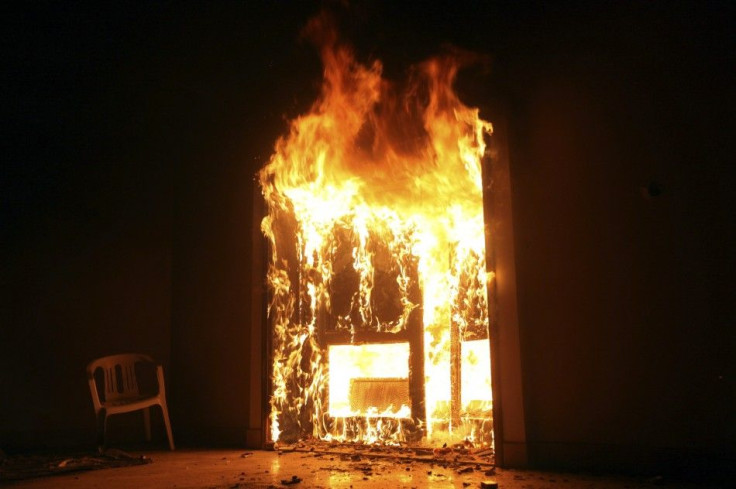Did Washington Cover Up Militant Involvement In Benghazi Attacks?

The U.S. administration has been accused of covering up for two weeks the intelligence reports suggesting the involvement of militant organizations in the attacks on the U.S. Consulate in Benghazi that led to the killings of the U.S. Ambassador to Libya, Chris Stevens, and three other Americans.
"What we're seeing now is the picture starting to develop that it wasn't a problem with the intelligence that was given, it's what they did with the intelligence that they were given," Representative Mike Rogers, chairman of the House of Representatives Intelligence Committee, told Reuters in an interview Tuesday.
"This picture is still a little fuzzy but it is starting to come into focus and it appears that there were, very early on, some indications that there was jihadist participation in the event," he said.
Meanwhile, two Republican lawmakers have accused President Barack Obama's administration of denying the repeated requests from the U.S. diplomatic facility in Libya for the increased security before the last month’s attacks.
Representatives Darrell Issa and Jason Chaffetz wrote a letter to Secretary of State Hillary Clinton Tuesday demanding details of the requests for more security, which they said were made after numerous attacks on the foreign nationals in Libya in the recent months, Reuters reported.
The House of Representatives Oversight and Government Reform Committee are set to hold a hearing Oct. 10 on the security situation in Benghazi prior to the attack.
Clinton’s response to the letter the same day mentioned that the State Department would collaborate with the committee, Reuters reported.
In the light of the fresh developments, the Obama administration may have to clear the air regarding suspicions that the covering up of intelligence data was an attempt to evade the Republican charges that the White House failed to prevent a terrorist strike on the 11th anniversary of the 9/11 attacks on the U.S.
Until the statement issued last Friday by the Director of National Intelligence James Clapper’s office, the U.S. officials had presented conflicting ideas of what transpired in Benghazi leading up to the deadly attack while maintaining that a spontaneous protest over an anti-Islamic movie was the root cause.
Shawn Turner, spokesman for Clapper's office, said that intelligence agencies had to revise their initial assessment that the attack was spontaneous to “reflect new information indicating that it was a deliberate and organized terrorist attack carried out by extremists."
National Counterterrorism Center Director Matthew Olsen told a Senate committee Sept. 19 that the evidence gathered so far didn’t indicate prior planning involved in the attack.
"The best information we have now, the facts we have now indicate this was an opportunistic attack on our embassy. The attack began and evolved and escalated over several hours," Olsen was quoted as saying by CNN. "It appears that individuals, who were certainly well armed, seized on the opportunity that was presented as the events unfolded that evening into the morning hours of September 12th."
“What we don’t have at this point is specific intelligence that there was significant advanced planning or coordination for this attack. Again, we’re still developing facts and still looking for any indications of substantial advanced planning. We just haven’t seen that at this point,” he added, which denied the existence of intelligence reports indicating otherwise.
“We are looking at indications that individuals involved in the attack may have had connections to al-Qaeda or its affiliates, in particular al-Qaeda in Islamic Maghreb,” Olsen said in response to the question from Senator Joe Lieberman.
When asked to comment on a CNN report that cited the slain ambassador’s personal journal where he had raised concerns about being on the al-Qaeda hit list, Clinton said she had “absolutely no information or reason to believe that there’s any basis for that.”
The Obama administration had also played down the possibility of the Libyan security personnel hired by the consulate helping the attackers.
White House spokesperson Jay Carney strongly defended the way Washington handled the intelligence data and its release.
"At every step of the way, the administration has based its public statements on the best assessments that were provided by the intelligence community. As the intelligence community learned more information, they updated Congress and the American people on it," Carney was quoted as saying by Reuters.
Reuters cited unnamed officials who were of the opinion that intelligence agencies might have tried to avoid jumping to conclusions before every aspect of the security situation and the attack had been analyzed.
© Copyright IBTimes 2024. All rights reserved.












